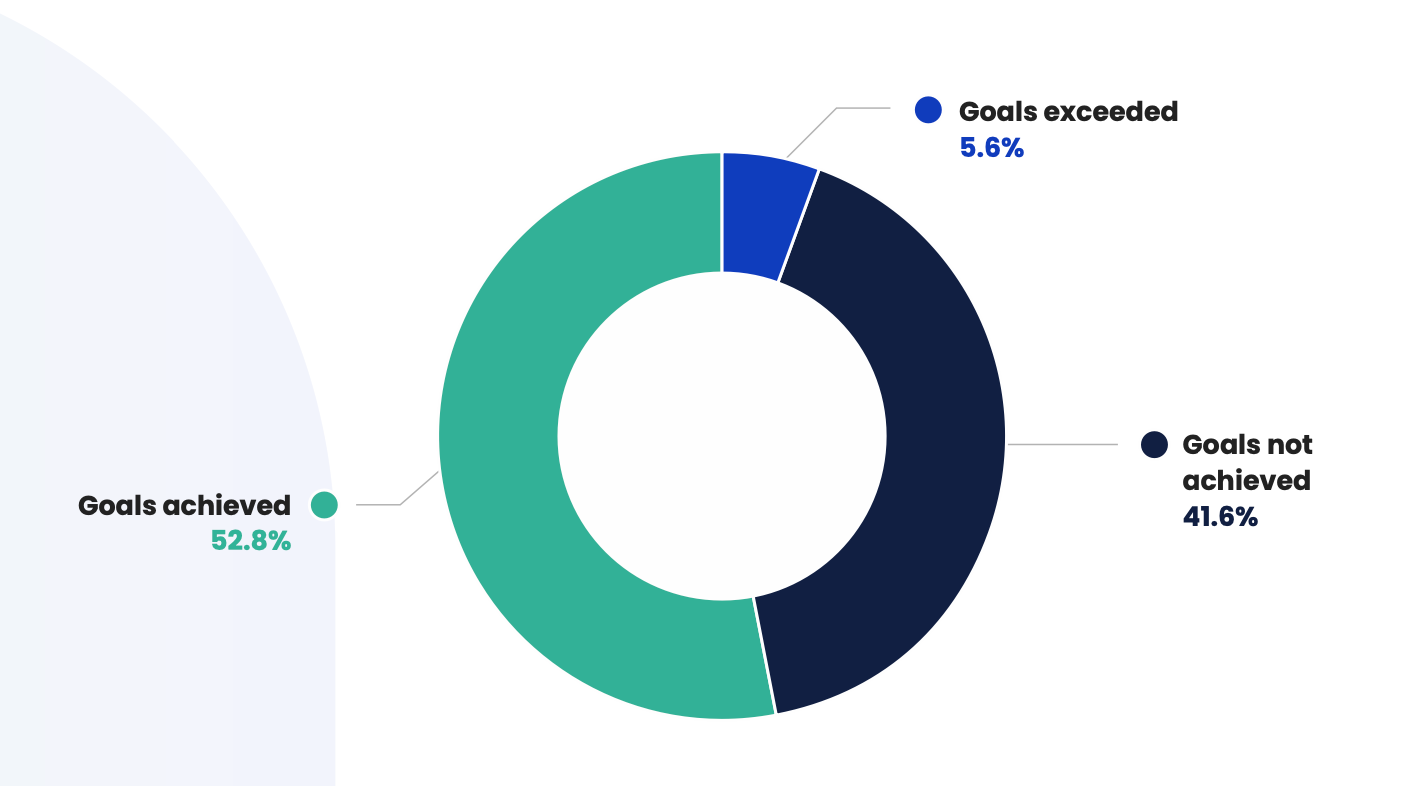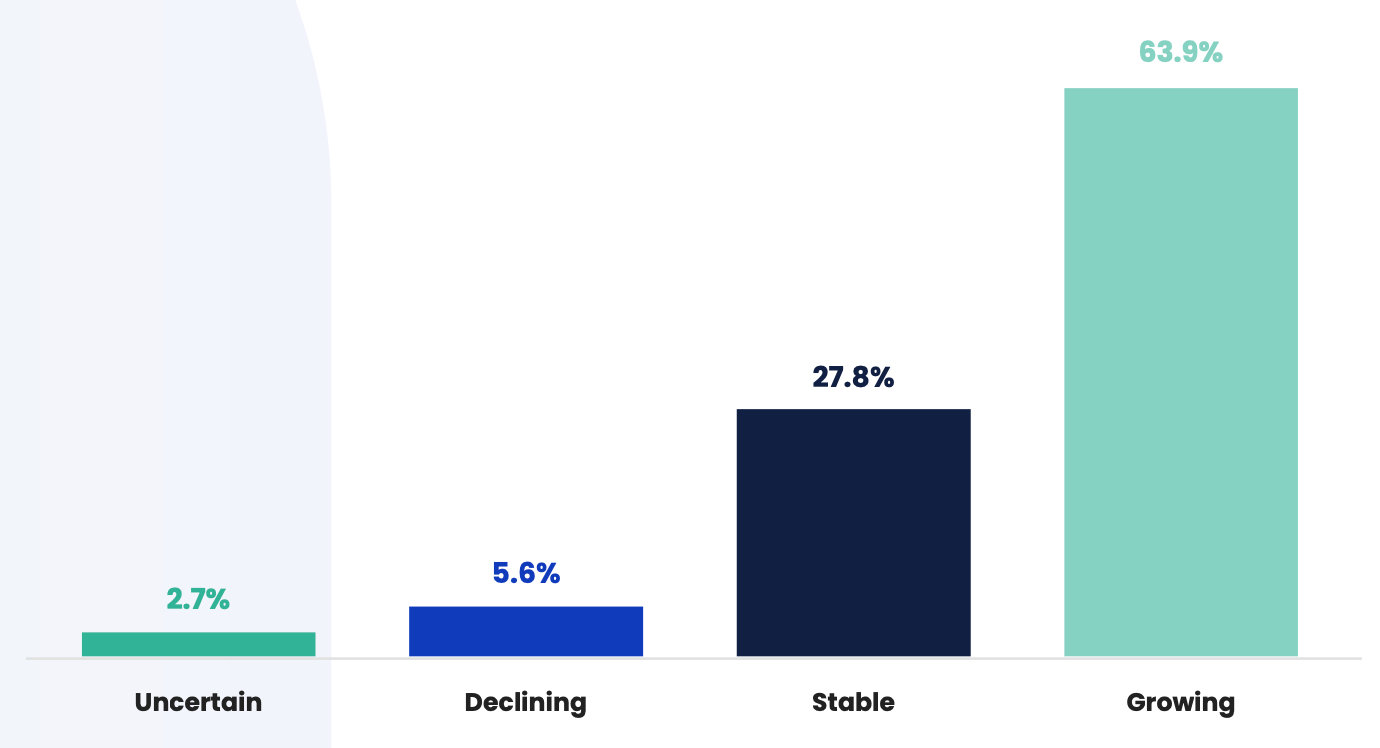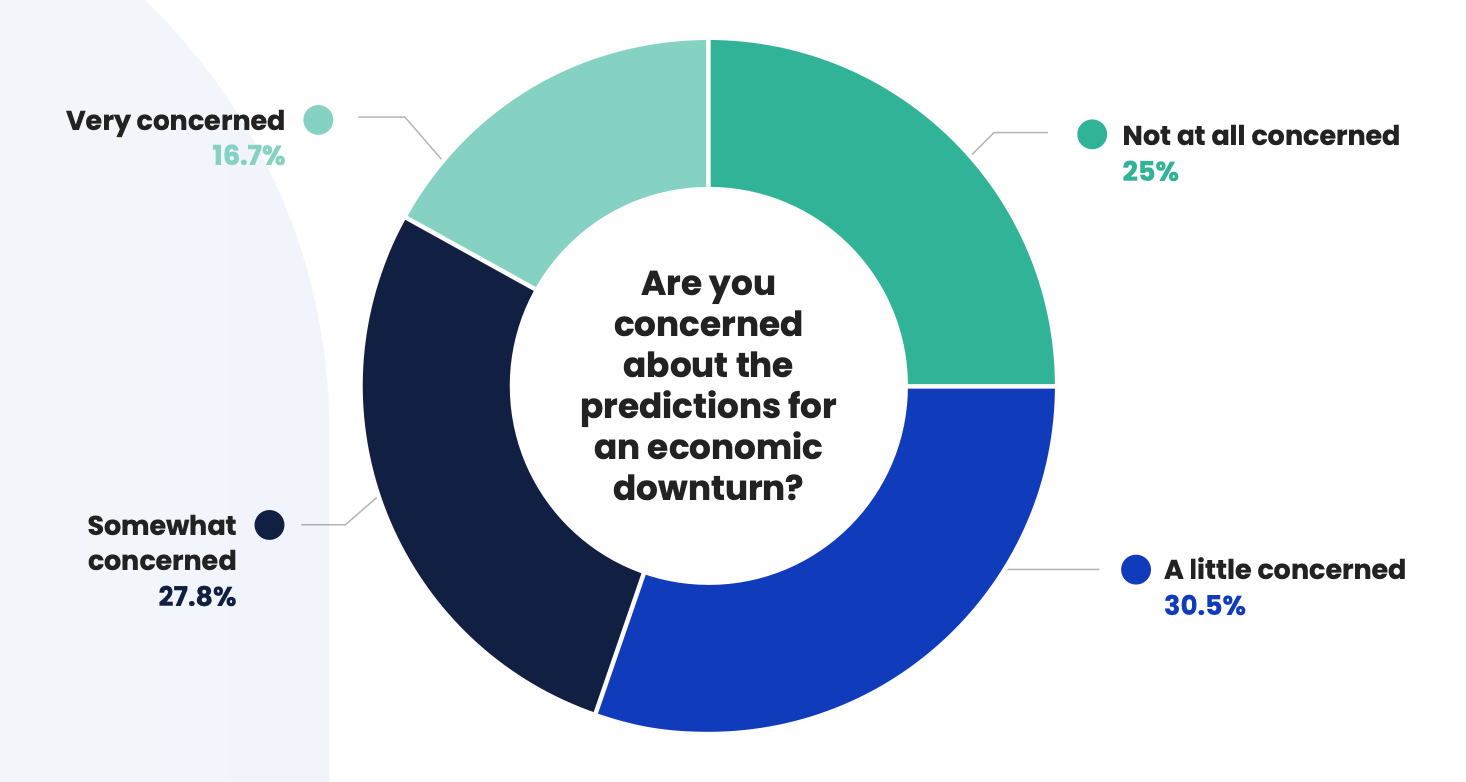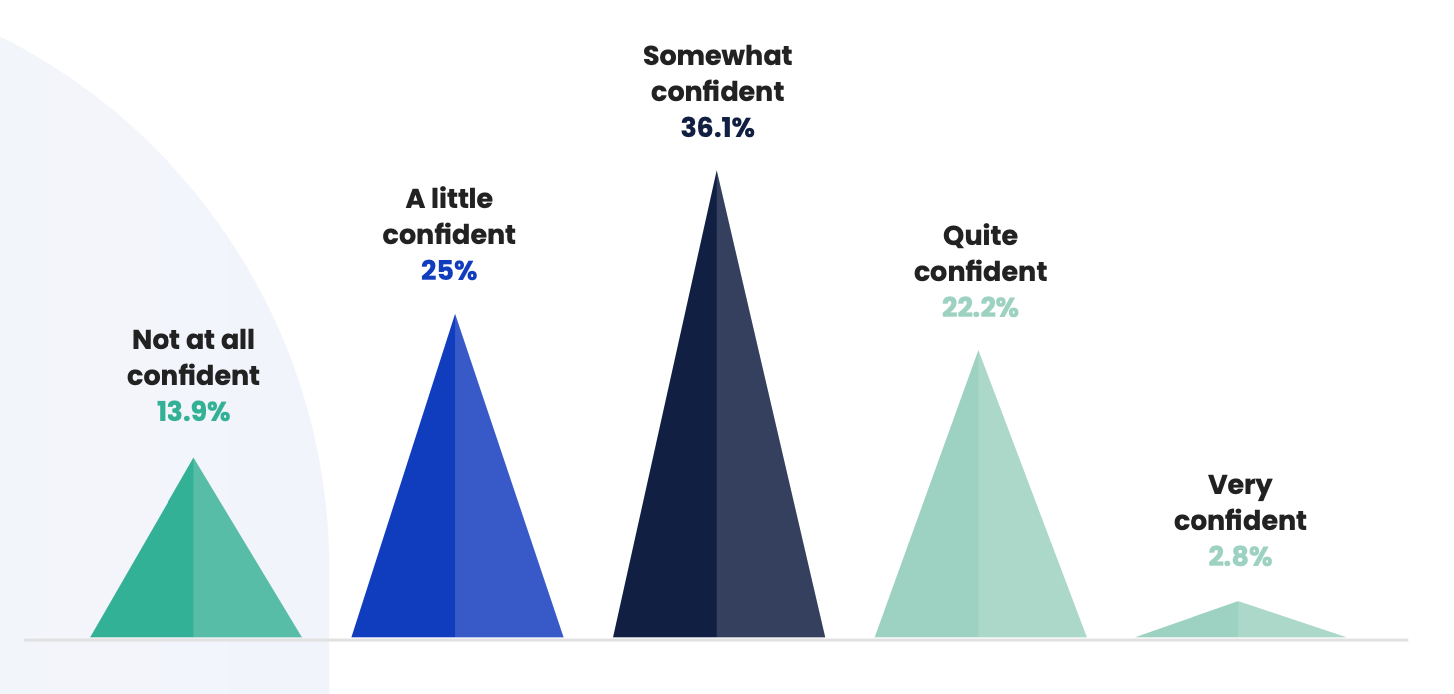A key goal for revenue marketing is ensuring revenue goals are met, and the results of marketing campaigns are effectively measured and attributed to any revenue generated.
Our State of Revenue Marketing report is packed full of data about how our respondents are fairing in terms of their revenue performance.
In this preview, we share some of our findings from the report related to revenue goals. But you can also download the full report for a more in-depth look at revenue marketing overall.
Revenue goals
We wanted to know how things are shaping up for our respondents in terms of their revenue goals, so we asked if they had achieved their revenue goals for the first half of 2022.

In a positive turn of events, “Goals achieved” received the highest number of votes with 52.8%, but “Goals not achieved” was not far behind with 41.6%, and very few chose “Goals exceeded” (5.6%).
We wanted to know if there was any correlation between those respondents who reported having a dedicated revenue marketing role and whether they were more likely to meet their revenue goals. However, looking closely at the data there did not seem to be any relation, and the breakdown of respondents who met or did not meet their revenue goals was evenly split between those with and those without a dedicated Revenue Marketer.
The only caveat was a 20.3% increase in the likelihood of exceeding revenue goals for those respondents that did have a dedicated revenue marketing role currently in their organization. And for those few that did exceed their revenue goals, they had also rated their marketing and sales alignment as “Good”, “Very good”, or “Excellent”.
Growth expectations
Of course, we want to look ahead to what the future might bring for revenue generation. So, we asked our respondents what their growth expectations are for the next 12 months.

In a very positive turn, the majority of people believe that their company will be Growing next year (63.9%), and just 5.6% believe their growth will decline.
When looking at the correlation between marketing and sales alignment and growth perceptions, we unsurprisingly see that those who reported growth expectations were also more likely to have a positive outlook for their organization’s current state of alignment.
Of those who predict their revenue to be “Growing”, 13.2% considered their alignment to be “Excellent”, 17.4% chose “Very good”, and 21.7% chose “Good”. Whereas 50% of those with a predicted “Declining” revenue performance reported “Terrible” alignment.
Biggest revenue performance challenges
We wanted to get an idea of just what our respondents consider to be the biggest challenges for meeting their revenue goals and growing as a company. We presented a number of options and asked our respondents to choose the ones that applied to them.

Interestingly, it was a “Lack of data and analytical skills” that came out on top with nearly half of respondents selecting it as an option (45.7%). “Lack of marketing resources” came second with 37.1% and “Not enough salespeople to work marketing leads” came next (34.3%).
In the “Other” category, reasons that were cited included time constraints, and sales managers not seeing a connection between marketing and revenue.
Revenue growth in uncertain times
There has been a number of reasons to worry about the potential for an economic downturn over the last couple of years. The COVID-19 pandemic brought many industries to a halt, and though we hoped the worst was over, the recent conflict in Ukraine, predictions of recessions on the horizon, and the cost of living crisis have understandably ushered in an era of uncertainty for many organizations.
We asked our respondents if they were at all concerned about the predictions for an economic downturn.

The results were mixed, and understandably we found that 66.7% of those who are “Not at all concerned” had achieved their revenue goals for the first half of 2022, compared to just 33.4% of those who are “Very concerned”.
Confidence in attributing marketing activity to revenue
More than half of our respondents (55.6%) believe that measuring and reporting on marketing ROI is a top priority for revenue marketing (X). But how confident are they in their abilities to do so? We asked our respondents about their confidence in their company’s revenue reporting capabilities.

We can see a mixed bag of responses, with most people settling somewhere between “Quite confident” and “A little confident”. Unfortunately, a reasonable number of people, 13.9%, are “Not at all confident” in their ability to attribute marketing activities to revenue
For the small number of respondents who were “Very confident” in their capabilities also rated their marketing and sales alignment as “Excellent”. For those who were “Quite confident”, their alignment was rated as “Excellent” (12.5%), “Very good” (50%), “Good” (12.5%), and “Fair” (25%). So, unsurprisingly a good relationship between marketing and sales results in a clearer vision of marketing ROI.
Want to read the full report?
Want to read the rest of our findings for revenue marketing in 2022? Download the full report today to discover what the revenue marketing role looks like currently, revenue performance projections and challenges, the state of marketing and sales alignment, and what MarTech is currently in use and if it’s up to task.



 Follow us on LinkedIn
Follow us on LinkedIn


